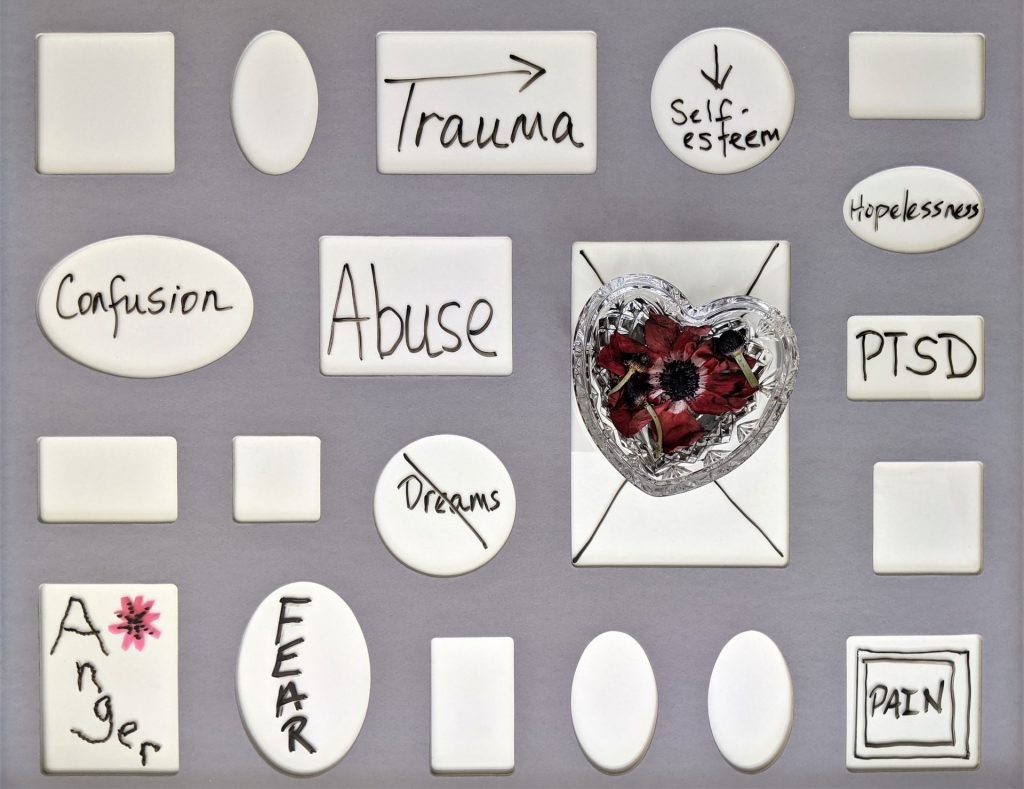Low Self-Efficacy: What It Is and How To Improve It.
When someone suffers from low self-efficacy, they have a distorted perception of their abilities. They often view their failure at a specific task as a personal failure and want to succeed on the first try.
Increasing and improving self-efficacy is a personal journey that begins within. It takes time and effort to achieve strong self-efficacy. It is NOT something that can be achieved overnight, it is a life-long journey.
This article can help you understand self-efficacy and guide you in your mission to improve low self-efficacy.

What Is Self-Efficacy?
Self-efficacy is an aspect of your self-esteem system. It is your belief in your ability to succeed in a particular situation. Also described as how people think, behave, and feel.[1] This system plays a significant role in how people perceive situations and how they behave in response. Self-efficacy is an essential part of the self-system, and suffering from low self-efficacy can impact how you feel and whether or not you can achieve your goals.
What does Self-Efficacy do for you?
The goals you have in life, those things you want to change, and all those things you want to achieve are all a part of your self-efficacy. How you approach your goals is a significant factor.

People with low self-efficacy:
- Avoid challenging tasks.
- Believe that complex tasks or situations are beyond their skill level.
- Tend to focus on personal feelings and adverse outcomes.
- Lose confidence in their abilities quickly.

How Self-efficacy Develops:
The formation of efficacy begins in early childhood. Various tasks, situations, and experiences help to shape your self-efficacy. This journey does not end with childhood, however. efficacy is continually shaped and changed throughout life as you acquire skills, have new experiences, and develop a deeper understanding of the world around you.
Albert Bandura, an influential social cognitive psychologist and thought to be the founding father of this topic, believed that there are four significant sources of self-efficacy:
Mastery Experiences:
Mastery experiences are the experience that we gain when we take on new challenges and succeed or fail.
Completing a task successfully strengthens our sense of self, making us more confident in our abilities. However, failing at something can weaken this aspect of the self and leave us feeling inadequate.
Social Modelling:
Seeing others succeed can increase the belief that you can succeed as well. This is especially true of similar others.
Watching similar others complete a task can cause an increase in your belief that you can succeed as well.
Social Persuasion:
Encouragement and positive feedback can also help to formulate your view of your self. Think of elementary school and the way that teachers encouraged you by providing positive feedback. Verbal encouragement from others can lead you to believe in your abilities, and thus your success in a given situation.
Psychological Responses:
Your emotions play a significant role in your self-image. Your mood, emotional state, physical reactions to a situation, and the level of stress you feel can all impact how you feel about your abilities. For example, if you get very anxious about speaking in public, you may start to believe that you are not good at public speaking. Thus, the way you feel in a situation can strengthen or weaken your self-efficacy.

What Does Low Self-Efficacy Look Like?
People with low self-efficacy tend to be threatened by challenging tasks and often avoid them altogether. This mindset may also lead them to avoid setting goals for themselves, or they may not be committed to the ones they do set. These people tend to give up quickly when faced with obstacles and often lack confidence in their ability to achieve a specific goal. This mean that they are more likely to feel the impacts of failure and experience its affects on their emotional and mental wellbeing. These people are more likely to be afflicted with depression and anxiety and are more likely than others to say that they ‘can’t’ complete specific tasks rather than trying to succeed at them.

A quick look at low self-efficacy reveals:
- Avoidance of challenges for fear of failure.
- A belief that you are incapable of performing complicated tasks.
- A focus on failures and seeing these failures as personal shortcomings.
- A lack of self-confidence.
- Lacking a sense of commitment.
- Difficulty recovering from setbacks or perceived failure,
- Loss of interest in activities you were a part of previously.
- An expectation of positive results without putting in the required efforts.
- Depression or anxiety about failure.
- A focus more on weaknesses than strengths.
The Environmental Factor:
Professionals suggest that there is an interplay between self-efficacy and your environment. High or low self-efficacy can predict four variables.
- Success – High or low self-efficacy in a positive environment can predict success. Positive environments are more likely to nourish positive results and encourage positive self-efficacy.
- Depression – When someone has low self-efficacy and lives in a negative environment, they are likely to fail failure more often than those in a positive environment and more likely to become depressed.
- Apathy – When people with low self-efficacy are in a positive environment, they may feel demotivated and helpless when they fail.
- Effort Maximization – Those with high self-efficacy in a negative environment are more likely to intensify efforts to achieve desirable results.
Studies indicate that cognitive distortions in people with low self-efficacy may indirectly contribute to their depressive symptoms and impaired perceptions of themselves and their surroundings.

4 Ways To Improve Low Self-Efficacy:
Set Goals
Whether big or small, goal setting is vital to the development of self-efficacy. If you feel that you have low self-efficacy (or know someone who does), start by creating small, manageable goals that are easily achieved. Starting small can help you build the confidence you need to take more considerable risks down the road.
Look At The Big Picture
People with high self-efficacy can look beyond short-term failures and see the bigger picture. If you fail today, you will be more prepared tomorrow. Look at the big picture by understanding the gifts that failure can provide.
Prepare For Failure
Even when we are 100% sure we will succeed, we should always be prepared for failure. No matter how much you practice, how well you know something, or how natural it has become, there is always a chance that you will fail. Being prepared for this failure is how you maintain self-efficacy despite setbacks. Preparation means having a plan in place if things do not go the way you thought they would so that you can see the end goal no matter the outcome of this moment. Do not expect failure, but do not expect success either.

Self-efficacy is a vital part of who we are as humans. This aspect of our self-identity can aid in our success and our failure at a task. The way we perceive our abilities and our thoughts about the situation we face will indirectly influence the outcome. Low self-efficacy will increase the odds of failure, which in turn will lower self-efficacy even more. Being prepared for the worst but doing our best is the only way to get through difficult times.
Remember, just because you have failed at something does not mean that you are a failure.
Until Next Time,
Try something new without fear of failure.